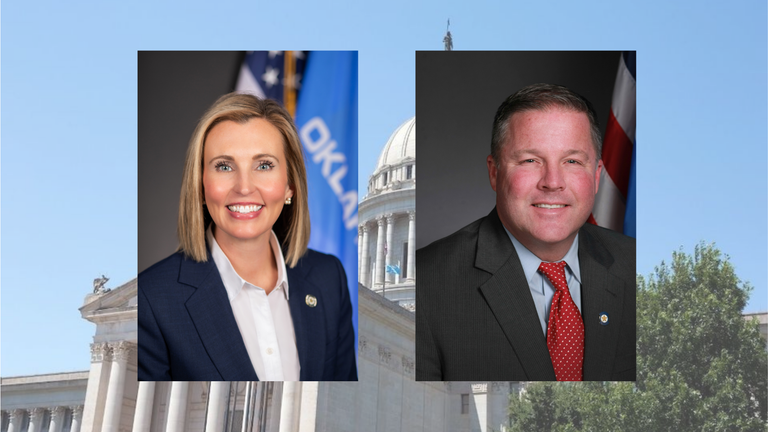
Education , Law & Principles
Ray Carter | January 23, 2024
Oklahoma lawmakers look to limit school misuse of virtual days
Ray Carter
Two state lawmakers hope to rein in public-school reliance on virtual-learning days, which have been strongly linked to major learning loss due to the often-subpar product provided.
“As a mom of three children who attend an Oklahoma public school, I have seen firsthand the lack of quality instruction that occurs on a remote learning day,” said state Sen. Kristen Thompson, R-Edmond. “Virtual days can be extremely stressful for parents, students, and teachers who want traditional, in-person learning. We have a responsibility to our kids to ensure they receive a high-quality education, every single day. Furthermore, if Oklahoma taxpayers are footing the bill for a full day of instruction, yet our students may be receiving only 30 minutes of lessons, that is absolutely a misuse of taxpayer dollars.”
“If having a virtual or remote learning day is resulting in students receiving little or no educational instruction, then we’re ignoring our responsibility to our students and abusing the trust of the taxpayers,” said state Sen. Lonnie Paxton, a Tuttle Republican whose wife is a public-school teacher. “This legislation helps make sure that any abuse of the system is stopped.”
Under Senate Bill 1768, public schools could shift to virtual learning only in the event of inclement weather, staff shortages caused by illness, building maintenance issues, or if found necessary by school administrators.
When a school district decides to use a virtual day instead of a traditional snow day, school districts would be required to provide a minimum of five and a half hours of instruction to K-8th students and six hours to high school students. Additionally, more than half of the online or digital instruction must be synchronous under the provisions of SB 1768, meaning there must be “real-time interaction between a teacher and students as the primary format of instruction.”
The widespread use of virtual-learning days that do not provide direct interaction with a teacher has been tied to plummeting academic outcomes nationwide.
A May 2022 report from the Center for Education Policy Research at Harvard University, “The Consequences of Remote and Hybrid Instruction During the Pandemic,” found that “remote instruction was a primary driver of widening achievement gaps” during the pandemic. The report’s findings were based on testing data from 2.1 million students in 10,000 schools in 49 states plus the District of Columbia.
A 2021 working paper from the National Bureau of Economic Research, “Pandemic Schooling Mode and Student Test Scores: Evidence from US States,” similarly reviewed the impact of district-level schooling mode (in-person versus hybrid or distance learning) on test scores. Researchers found “that pass rates declined compared to prior years and that these declines were larger in districts with less in-person instruction.”
While Oklahoma did not impose COVID school shutdowns to the same degree as many other states, the associated learning loss was still significant.
A 2023 report, “The Economic Cost of the Pandemic,” by Eric A. Hanushek, a senior fellow at the Hoover Institution at Stanford University, estimated that COVID learning loss will result in a nearly 9-percent lifetime income loss for Oklahoma students impacted by COVID closures, tied for the greatest impact in the nation.
That will translate into a loss of nearly $200 billion in the state throughout the current century as today’s students become adults and enter the workforce and produce an average GDP loss of nearly 3 percent for Oklahoma throughout the 21st century (tied for the largest percentage loss among all states).
Although the shift to virtual learning was initially an emergency measure taken by public schools during COVID, it has persisted into the current school year with districts often relying on it during snow days or even scheduling regular virtual days throughout the school year.
The impact of rapid shifts to subpar online learning may be even more significant for Oklahoma’s public-school students than for students in other states.
In 2023, the Pew Research Center reported that K-12 public schools in most states are required to be in session close to 180 days per school year. But in Oklahoma, schools can be in session as few as 165 days per year so long as 1,080 hours of learning are provided over those 165 days.
With Oklahoma schools able to provide up to three weeks fewer days of learning than in many states, the impact of losing any of those days to subpar online instruction is magnified.
Officials in other states have restricted the use of virtual days and required public schools to provide in-person learning.
The state of Indiana has a law that limits public schools to three days of asynchronous instruction, which the law defines as days in which over half of instructional time is self-paced without being teacher-led.
Arkansas lawmakers have enacted a similar law that limits virtual days by requiring that public schools provide 178 in-person on-site learning days each school year.

Ray Carter
Director, Center for Independent Journalism
Ray Carter is the director of OCPA’s Center for Independent Journalism. He has two decades of experience in journalism and communications. He previously served as senior Capitol reporter for The Journal Record, media director for the Oklahoma House of Representatives, and chief editorial writer at The Oklahoman. As a reporter for The Journal Record, Carter received 12 Carl Rogan Awards in four years—including awards for investigative reporting, general news reporting, feature writing, spot news reporting, business reporting, and sports reporting. While at The Oklahoman, he was the recipient of several awards, including first place in the editorial writing category of the Associated Press/Oklahoma News Executives Carl Rogan Memorial News Excellence Competition for an editorial on the history of racism in the Oklahoma legislature.